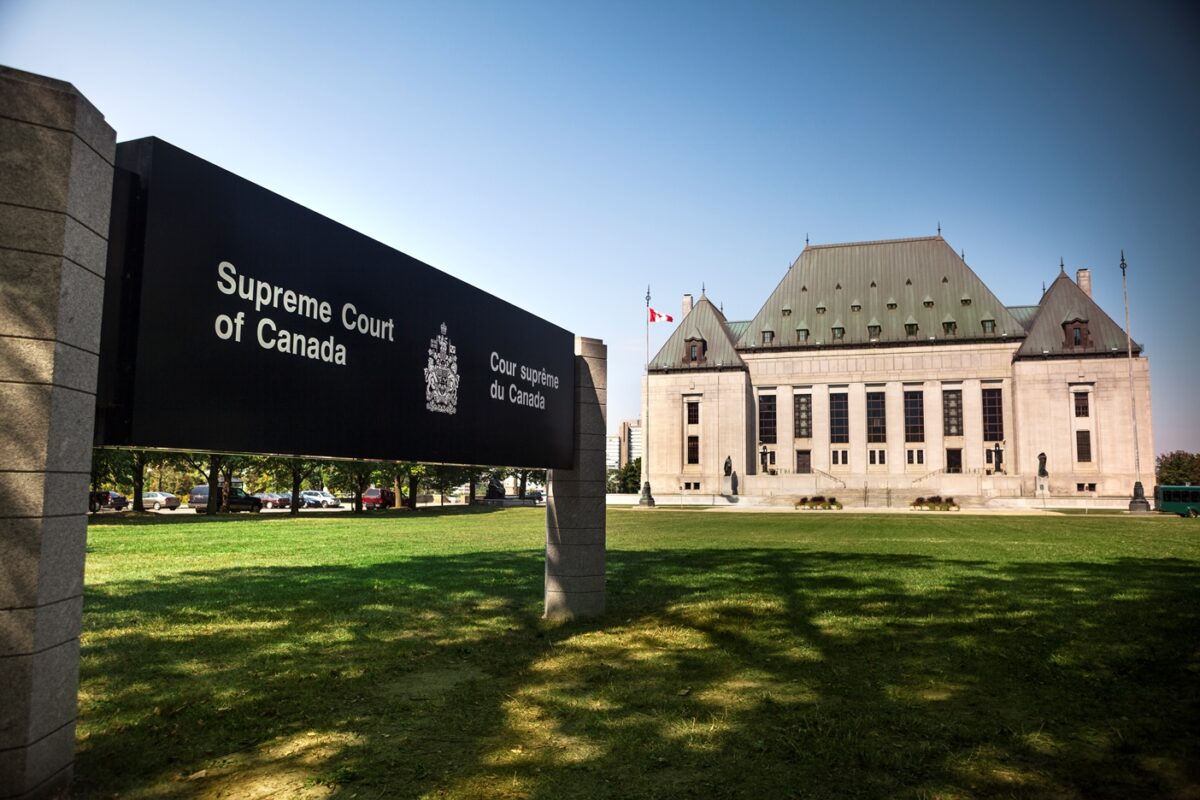SCC Rules Carbon Tax is Constitutional

Authors: Deron Kuski, K.C., Jodi Wildeman, K.C., Bennet Misskey, Andrew Konopelny
On March 25, 2021, the Supreme Court of Canada (SCC) released its decision in the much anticipated Reference re Greenhouse Gas Pollution Pricing Act, 2021 SCC 11, which ruled on the constitutionality of the federal legislation, Greenhouse Gas Pollution Price Act (the GGPPA).
In a 6-3 split decision, a majority of the Court held that the GGPPA is constitutional and that Parliament has jurisdiction to enact this law as a matter of national concern under the peace, order and good government (POGG) clause of s. 91 of the Constitution Act, 1867.
Background on the GGPPA
The overarching issue raised in this reference was the extent to which Parliament can impose its carbon pricing regime on the provinces in areas that otherwise fall within provincial jurisdiction.
The GGPPA seeks to ensure that provinces regulate a broad set of greenhouse gas (GHG) emissions sources, including certain fuels and industrial activities, by means of carbon pricing. If, in the view of the Governor in Council, a province does not adopt a sufficiently stringent carbon pricing system, the GGPPA will apply in that province as a backstop.
Specifically, Part 1 of the GGPPA imposes a regulatory charge on GHG-emitting fuels in a listed province and Part 2 establishes emissions limits for large industrial facilities located in listed provinces. Currently, the listed provinces under Part 1 are Saskatchewan, Alberta, Manitoba and Ontario, while Part 2 includes Ontario, New Brunswick, Manitoba, Prince Edward Island and Saskatchewan.
The provincial Attorneys General of Saskatchewan, Ontario and Alberta challenged the constitutionality of the legislation on the basis that Parliament was legislating in areas of exclusive provincial jurisdiction. The Federal Government defended the legislation as a valid exercise of its power to make laws as a matter of national concern under the POGG power.
These constitutional challenges produced divided results. The Courts of Appeal in Saskatchewan and Ontario held that the GGPPA is constitutional while the Court of Appeal of Alberta held that it was unconstitutional. Those decisions were appealed to the Supreme Court of Canada.
The Supreme Court’s Majority Decision
The majority decision, written by Chief Justice Wagner, concluded that the GGPPA was constitutional.
It held that the GGPPA sets minimum national standards of GHG price stringency to reduce GHG emissions, which cause serious extra-provincial harm. Parliament therefore had jurisdiction to enact this law under the national concern branch of the POGG power.
The majority noted that the POGG power is rarely applied and strictly limited in order to maintain the autonomy of the provinces and respect the diversity of Confederation. However, it may be applied in appropriate cases where there is a matter of genuine national concern and where recognition of this matter is consistent with the division of powers, which it held to be the case.
Chief Justice Wagner highlighted that the test to recognize a matter as one of national concern is a high bar.
First, the matter must be of sufficient concern to Canada as a whole to warrant consideration under the national concern doctrine.
In this case, the majority found that setting minimum national standards of GHG price stringency to reduce GHG emissions is a matter “critical to our response to an existential threat to human life in Canada and around the world” and, in their view, met the threshold.
Second, to prevent federal overreach, the majority held that matters of national concern should be restricted to a specific and identifiable matter that is qualitatively different from matters of provincial concern and only when the evidence shows a provincial inability to deal with the matter.
In this case, the Court found that minimum national standards of GHG price stringency, which are implemented by means of the backstop of the GGPPA, relate to a federal role in carbon pricing that is qualitatively different from matters of provincial concern. It is distinctly federal in evaluating provincial pricing mechanisms against an outcome-based legal standard to address national risks posed by insufficient pricing stringency in any part of the country.
The majority also found that the provinces and territories were constitutionally incapable of establishing a minimum national GHG pricing floor that applies in all provinces and territories at all times. It also found that a failure to include one province in the scheme would jeopardize its success in the rest of Canada. According to the majority, this would have grave consequences for extra provincial interests as GHG pricing in particular is an integral aspect of any scheme to reduce GHG emissions.
In turning to the scale of impact on provincial jurisdiction, the majority acknowledged that recognizing this matter as one of national concern would have a clear impact on provincial jurisdiction. However, in the majority’s opinion, its impact on provincial freedom to legislate was limited and outweighed by the impact on interests that would be affected if Parliament were unable to constitutionally address the matter at a national level.
Dissenting Opinions
There were three separate dissenting opinions from Justices Côté, Rowe and Brown.
While Justice Côté agreed with the majority’s assessment of the national concern test, she concluded the GGPPA was unconstitutional in part due to the fact that the GGPPA gave the federal cabinet an unacceptable level of discretion that was in itself unconstitutional.
Of particular concern was the power given to the federal cabinet to re-write the legislation itself through regulation. While recognizing that discretion provides flexibility and is practically necessary, Justice Côté found that “when an Act endows a select few the power to re-write, and thus reengineer, a law which affects virtually every aspect of individuals’ daily lives and provincial industrial, economic, and municipal activities, it goes too far.”
Justice Brown concluded that the GGPPA is entirely unconstitutional, and held that the GGPPA intruded on several areas of provincial jurisdiction.
Given that the POGG power is a residual power, the fact that the GGPPA’s structure and operation is premised on provincial legislatures having authority to enact the same scheme was, in his view, fatal to the constitutionality of the legislation. Justice Brown also expressed concern that the subjection of provincial legislative authority to Parliament’s overriding authority to establish “national standards” would impermissibly open the door to federal supervisory legislation in many other areas of provincial jurisdiction, including intra-provincial trade and commerce, health and the management of natural resources. Justice Brown found that resorting to the POGG power to uphold the GGPPA would create future tensions in the federation, “since Parliament could have achieved its goals in constitutionally valid ways.”
Justice Rowe’s dissenting opinion similarly concluded the GGPPA is wholly unconstitutional, and adopted the reasoning of Justice Brown. Justice Rowe emphasized that the “importance” of a matter should not form part of the test.
The POGG power is residual in nature and serves to maintain the exhaustiveness of the division of powers, “not to centralize important matters that can be legislated upon by the provinces or by both orders of government.” According to Justice Rowe, a matter of national concern cannot be shared between both orders of government; it must be entrusted exclusively to Parliament. It does not apply to matters, such as here, where it can be broken down and shared between different levels of government.
What Comes Next?
The implications of this decision transcend the GGPPA and can potentially affect a large number of division of powers issues moving forward.
In addition, both the majority decision and the dissenting opinion of Justice Rowe noted the potential for future challenges if the GGPPA’s regulations were changed by federal Cabinet.
Given the complexity of this decision, much more could be said about its impact on both Canadian constitutional law and the practical impacts for industries affected by the GGPPA. MLT Aikins will continue to provide insights on the future implications of today’s decision in the near future.
Note: This article is of a general nature only and is not exhaustive of all possible legal rights or remedies. In addition, laws may change over time and should be interpreted only in the context of particular circumstances such that these materials are not intended to be relied upon or taken as legal advice or opinion. Readers should consult a legal professional for specific advice in any particular situation.





